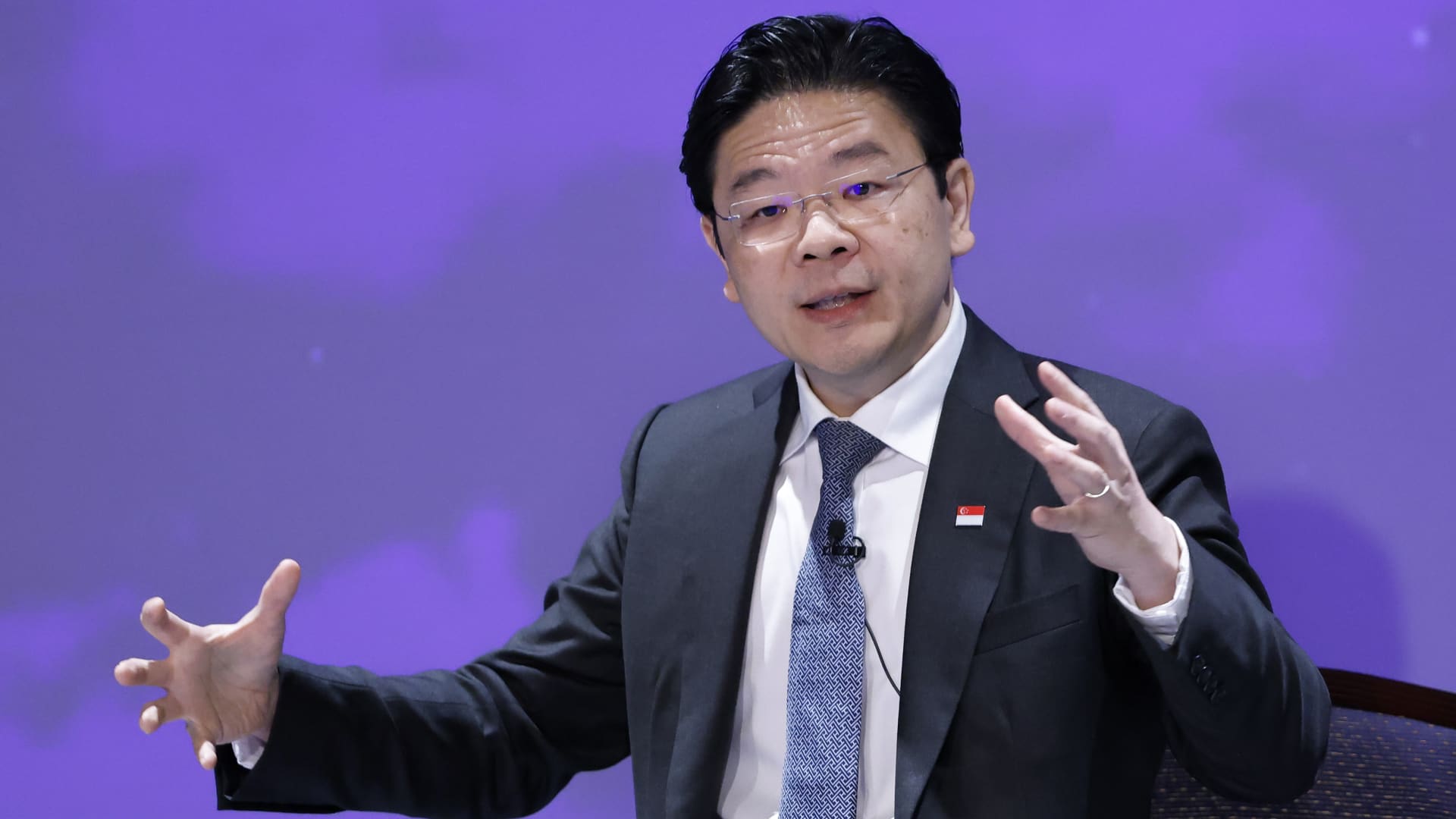
Lawrence Wong, Singapore’s deputy prime minister and finance minister.
Kiyoshi Ota | Bloomberg | Getty Images
Singapore’s Deputy Prime Minister Lawrence Wong said he expects technology — including artificial intelligence — to disrupt the labor market, but it won’t eliminate jobs completely.
In fact, technology can make humans more productive and create more jobs, he said at the Asia Tech x Singapore summit on Tuesday.
“I do not believe we will end up with a jobless future, a dystopian jobless future where machines take over humans for everything and humans become upset because technology can replace some tasks,” said Wong.
The summit gathers government officials, executives from global companies and consumers over four days to discuss the role of technology in the future.
Wong, who is also the city-state’s finance minister, said what will change is “the nature of jobs in blue and white-collar occupations” and warned that the “pace of change will accelerate, the scale of disruptions will increase with time.”
He added: “It can also make us more productive in performing other tasks. And by doing so, it will create new tasks and new jobs.”
AI has become the new buzzword in the business world, after chatbot ChatGPT went viral following its release in November. The AI-powered chatbot, which can generate humanlike responses to users’ prompts, reached 100 million users in just two months after its launch.
Some researchers and analysts have even suggested it could lead to human extinction and replace jobs.
These experts, including Sam Altman, CEO of ChatGPT owner OpenAI, as well as executives from Google‘s AI arm DeepMind and Microsoft, also called for global priority to reduce the risks associated with AI.
Regulations needed
The International Monetary Fund’s first deputy managing director, Gita Gopinath, has also warned of “substantial disruptions” in labor markets and “very large” risks arising from generative AI, according to a Financial Times report. She also called on governments to introduce regulations to govern the technology.
Singapore’s Wong said workers need to learn to adjust and adapt amid the impending disruptions stemming from AI.
“Understandably, this will create anxiety among those who are less able to adjust and adapt. All of us will do more to help workers refresh and update their skills so that they can stay competitive and relevant in an increasingly digital world,” he said.
“We cannot leave this for markets to take care of themselves. Neither can we say this is just the responsibility of employers alone,” stressed Wong.
He added that regulators need to implement “comprehensive support” in the form of job matching and skills development. “This will require concerted and proactive efforts on the part of governments, industry and skills training providers,” said Wong.
Singapore launched AI Verify, the world’s first testing toolkit, to help companies objectively assess and verify whether their AI products are responsible and meet the international principles, said Wong.
The country will continue to work with the industry on pilot projects and drive the development of AI testing standards, he added.




